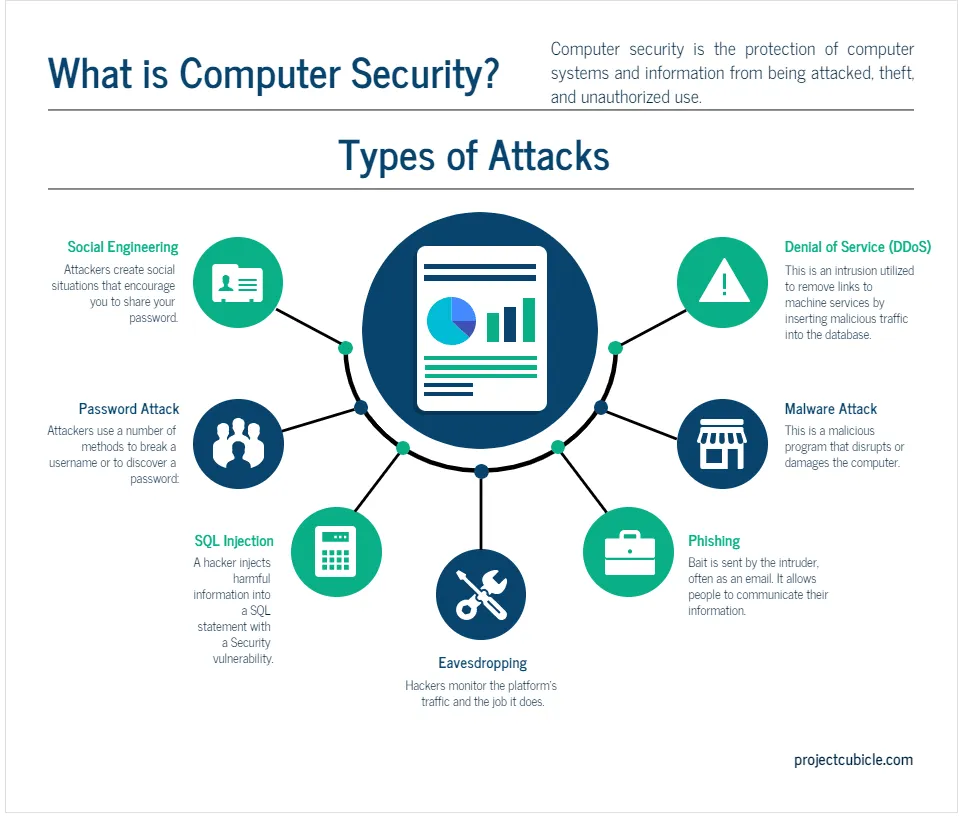Businesses must employ strong security measures to protect their data from theft and unauthorized access to stay ahead of constantly evolving hacking techniques and cyberattacks. Unfortunately, many businesses, particularly SMBs, face difficulties implementing such measures due to their limited budgets, lack of security personnel, and lack of expertise.
If you grapple with similar challenges, opting for managed security solutions can be advantageous. Managed security services can provide significant benefits to organizations by securing their data and protecting their overall security posture.
Markets and Markets’ report, “Managed Security Services Market,” projects that the market for managed security services will grow from $31.6 billion in 2020 to $46.5 billion in 2025, with a predicted compound annual growth rate (CAGR) of 8%.
Contents
What is a managed security service provider (MSSP)?
An MSSP, or Managed Security Service Provider, is a valuable external partner for organizations’ cybersecurity needs. By leveraging the expertise of an MSSP, organizations can effectively monitor and manage their cybersecurity operations. MSSPs bring a team of skilled professionals with comprehensive knowledge of addressing cyber threats, attacks, and breaches. They use advanced tools and methodologies to continuously monitor networks, systems, and digital assets, promptly detecting anomalies and potential security breaches.
MSSPs excel in incident response, swiftly analyzing and containing threats to minimize damage and downtime. Outsourcing cybersecurity to an MSSP allows organizations to tap into specialized knowledge and experience, strengthening their threat detection capabilities and overall security posture. This partnership enables organizations to focus on their core operations while entrusting their cybersecurity needs to capable hands.

Figure 2: Security attacks
Image source: projectcubicle.com
Common Security Challenges Faced by Organizations
Security operations face significant people-related challenges, including staffing, skills, and knowledge shortages. Finding trained personnel with relevant experience is difficult, especially with the rapid shift to new operating modes and cloud infrastructures. Skills shortages lead to existing staff filling security gaps, but they may struggle to effectively use monitoring and management tools, resulting in slower or failed responses to threats.
A knowledge shortage exacerbates this issue, as insufficient understanding of the protected systems leads to failure in recognizing and appropriately responding to problems. These challenges result in more false positives and false negatives, wasting time and potentially failing to respond to genuine attacks.
Cybercriminals increasingly target remote workers due to inadequate security measures. Many employer-provided desktops, laptops, and company smartphones lack anti-virus or cybersecurity software. The pandemic has witnessed a surge in email phishing attacks. Organizations are tackling a huge number of phishing attacks per month. Rushed transitions to remote work have left users without sufficient security features. To safeguard your business, invest in robust security solutions like Endpoint Detection and Response to detect and address network risks before data loss or compromise occurs.
3. Third-Party App Security Concerns
As technology advances and our interconnectedness grows, safeguarding third-party applications has become increasingly challenging. The rise in attacks targeting IoT devices illustrates their appeal to hackers, who often exploit the negligence surrounding these devices. Once connected, IoT devices are frequently neglected and left vulnerable.
Regular updates, password changes from default settings, and secure internet connections are imperative to mitigate the risks associated with IoT devices. Implementing these measures can minimize the potential impact of IoT devices.
How Can Managed Security Services Mitigate Security Risks?
1. Proactive Surveillance and Swift Incident Mitigation
Reacting to a breach post-incident can have devastating consequences for businesses managing critical data and proprietary information. Managed security solutions go beyond periodic checks; they offer continuous, real-time monitoring. By constantly observing and analyzing disruptions, MSSPs detect potential threats as they unfold. Through a combination of manual and automated penetration testing, they even evaluate the robustness of firewalls. MSSPs leverage data from attempted intrusions to safeguard sensitive areas of your system, actively monitoring malware and hacker activities. In an intrusion, they respond promptly to safeguard compromised data.
2. Extensive Expertise in Safeguarding against Cyber Threats
MSSPs possess a profound understanding of the common and emerging cybersecurity challenges various organizations face. Their diverse experiences in addressing security issues across different sectors make them adaptable and flexible. By leveraging the extensive expertise and knowledge acquired through years of practical experience, you can immediately benefit from the valuable insights and guidance MSSPs provide.
3. Harnessing Cutting-Edge and State-of-the-Art Technologies
While organizations typically have robust security measures in place, even the most advanced technologies may have certain vulnerabilities that need addressing for a truly comprehensive solution.
Managed security solutions go beyond merely using technology to uphold your security framework. They gather and consolidate data and reports from diverse sources, proactively leveraging this information to detect threats and mitigate weaknesses. Moreover, they employ technology to evaluate the overall security posture of your organization, conducting comprehensive gap analyses, assessing system controls, and identifying critical vulnerabilities that cyber attackers often exploit to infiltrate even the most fortified enterprises.
Conclusion
Organizations face numerous security challenges in today’s digital landscape, including staffing and knowledge shortages, remote worker vulnerabilities, and third-party application security concerns. Managed security services offer a comprehensive solution to mitigate these risks and enhance the overall security posture. By partnering with a reputable managed security service provider, organizations can benefit from proactive surveillance, extensive expertise, and cutting-edge technologies to detect and respond swiftly to cyber threats. Embracing managed security services enables businesses to safeguard their data, protect against evolving cyberattacks, and focus on their core operations with confidence. Consider engaging a trusted partner like Sterlite Technologies Limited (STL) to fortify your organization’s security defenses.
FAQs
Cybersecurity arises from the ever-evolving nature of cyber threats, including malware, ransomware, and phishing attacks. These encompass the complexities and risks associated with protecting computer systems, networks, and data from unauthorized access, exploitation, and disruption. Mitigating these challenges requires continuous monitoring, robust security measures, and a proactive approach to preventing potential threats.
Companies rely on managed service providers to mitigate risks by providing ongoing network monitoring and handling essential tasks such as updates and maintenance. This proactive approach eliminates the need to outsource IT services only in response to issues or emergencies.
● Cost-effective: MSSPs provide advanced technology and expertise at affordable prices, leveling the playing field for small businesses.
● Scalable solutions: MSSPs offer easy scalability to accommodate business growth and efficiently manage security needs.
● Affordable labor costs: Access highly skilled labor at affordable rates without full-time employment.
Managed security services involve outsourcing security systems and device monitoring and management. An MSSP oversees tasks such as managing SIEM tools, Intrusion Detection Systems/intrusion prevention systems, firewalls, anti-virus software, vulnerability and compliance management, and other related functions.














